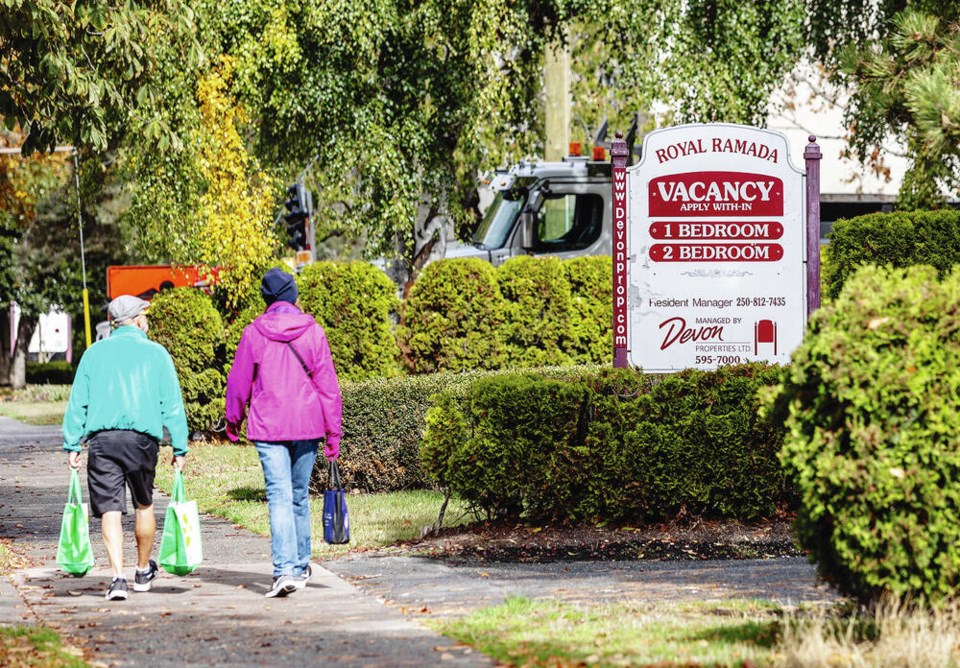Greater Victoria remains the third-most expensive rental market in Canada, according to a new report by the Canada Mortgage and Housing Corporation.
The average price for a two-bedroom purpose-built rental unit in Greater Victoria was $1,839 in 2023, says the CMHC’s rental market report released Wednesday. Vancouver remains the most expensive city to rent in, with average monthly rent for a two-bedroom purpose-built apartment at $2,181, followed by Toronto at $1,961.
Rents in Greater Victoria continue to increase rapidly as demand exceeds supply, although at a slightly slower pace than in 2022, the report says. Rents within the City of Victoria increased more quickly than those in other municipalities, with strong demand for rentals near the urban centre.
Significant population growth in Greater Victoria has kept the region’s vacancy rate relatively unchanged despite an increase in housing supply, said Braden Batch, lead economist for CMHC’s B.C. region.
The region’s population grew by about three per cent in 2022 and 2023, Batch said, noting 1.5 per cent growth is normal.
“It’s hard to overstate how big of a change in population there was over the last two years,” he said.
That population growth has come at a time when housing starts have been trending strongly upward, he said, which means the 1.6 per cent vacancy rate has remained steady.
The same can’t be said for Vancouver, where rental stock has not kept pace with population growth, he said, leading to a vacancy rate of less than one per cent. The increase in housing stock is still not enough to meet demand in Victoria, he said, although the high population growth is not expected to continue.
Increasing rents impact affordability, particularly for low-income workers, the report notes.
A minimum-wage worker renting at the average rate would need to spend more than 40 per cent of their monthly income for housing, and those who move will likely face even higher amounts. Units that turned over to new tenants after renters moved out were 41.5 per cent more expensive than units where renters remained, the report says.
Fewer than one per cent of the cheapest 25 per cent of two-bedroom apartments in the region were vacant in 2023.
There was higher turnover in Sidney, Langford and Sooke, where average rents are higher than the region’s average, providing less incentive to stay in the same unit.
The significant increases in rent seen in units that turned over in 2023 underscores the need to tie rent increases to the unit, rather than the tenancy, said Doug King, executive director at Together Against Poverty Society.
“If the government were to make that change and make that step, that’s actually when you’d start to see decreased rent over time,” he said.
King said it’s important to remember units aren’t staying vacant for long, and rents will only decrease when units hit the market and remain empty for long enough to incentivize landlords to drop their prices.
King is curious to see how the vacancy rate of condo rentals changes in 2024, after provincial rules limiting short-term rentals come into effect in May. The vacancy rate of the condo rental market in Greater Victoria was 0.1 per cent in 2023, compared to 1.6 per cent in the purpose-built rental market.
“If it doesn’t translate to a higher vacancy rate, then they’re obviously not doing their intended job,” he said.
>>> To comment on this article, write a letter to the editor: [email protected]



